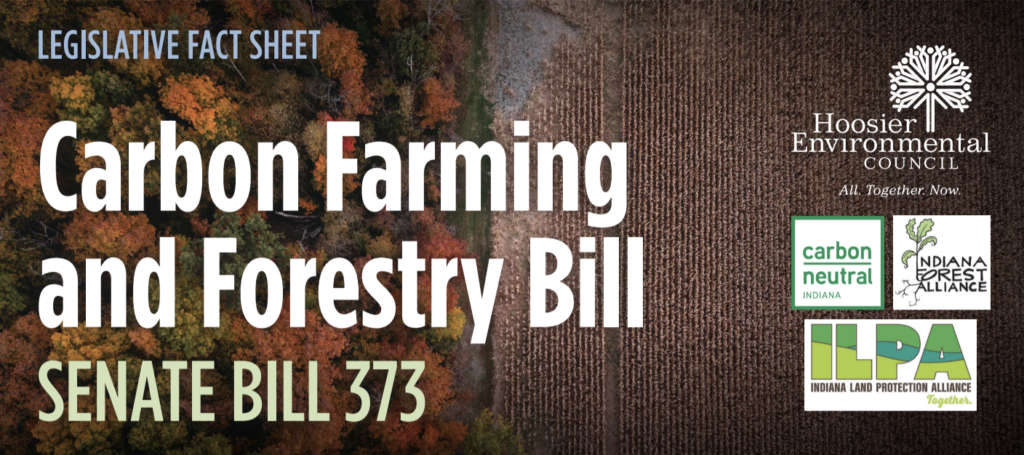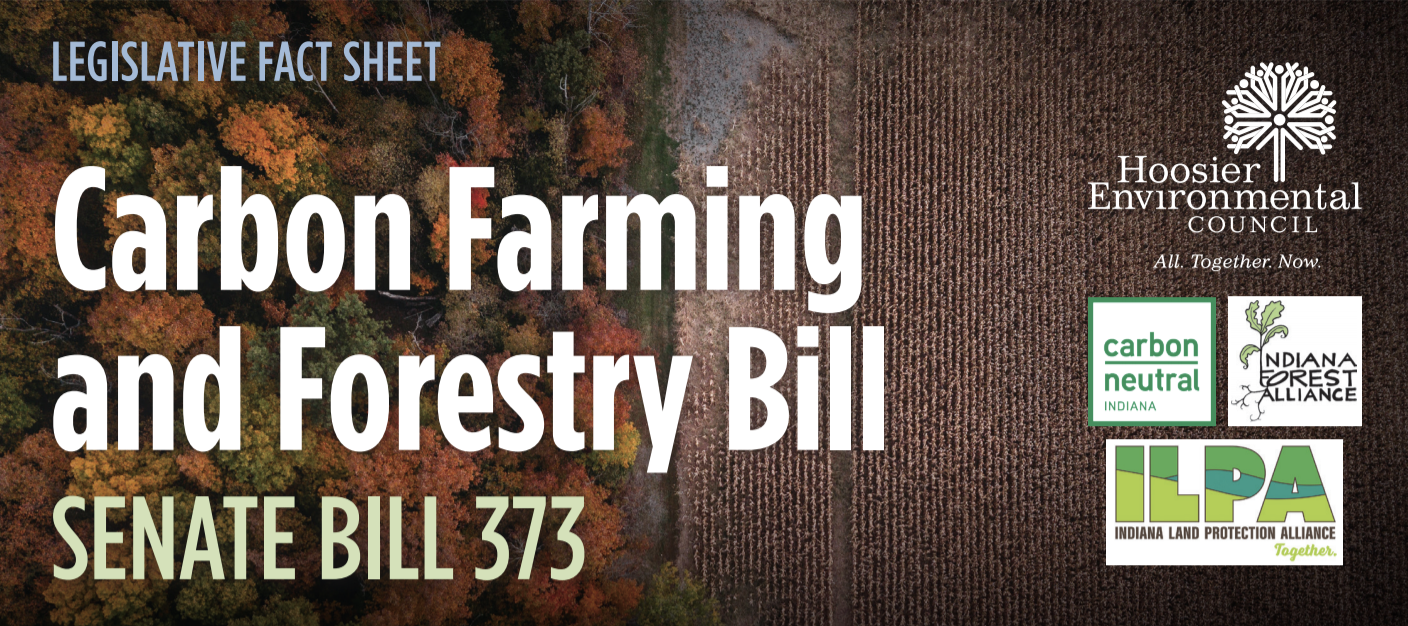
Forests and soils capture tremendous amounts of carbon dioxide and other greenhouse gases. In Indiana, our forests sequester 5.4 million metric tons of carbon dioxide each year and store 368 million metric tons of carbon. Forest land in Indiana—after decades of increasing in size—is now shrinking in many areas, with 85 of Indiana’s 92 counties having lost forest acreage in the period 2001 to 2016.
Agricultural soils—when managed properly—are major carbon sinks. Best practices that improve soil health—cover crops, no-till planting, conservation buffers—also improve soil’s ability to capture carbon. Combined, these three practices can increase carbon capture in soils by over one-half metric ton per acre per year.
Across the U.S., businesses and individuals are seeking ways to reduce their carbon footprint. At the same time, farmers and woodland owners are looking to improve the financial return on their stewardship of forests and farmland. One solution is to expand carbon markets—where buyers looking for carbon offsets meet landowners and public agencies with offsets to sell.

The Carbon Farming and Forestry Bill
This bill would encourage farm and woodland owner participation in carbon markets, through a technical assistance and carbon offset verification program administered by the Indiana State Department of Agriculture.
The second element of the bill would generate new revenue for two state programs that help sequester carbon. The President Benjamin Harrison Conservation Trust buys new public lands for conservation and outdoor recreation purposes, including forest land. The Carbon Farming and Forestry Bill would enable the Harrison Conservation Trust to sell advance carbon offsets, with the sale revenue used to purchase and protect forest lands that sequester an amount of carbon equivalent to the carbon offsets sold.
The bill would also benefit Clean Water Indiana (CWI)—which helps farmers utilize best management practices to conserve soil and protect water quality—by enabling CWI to sell advance carbon offsets, with the revenue used to support agricultural best practices on private farmland that sequester carbon equivalent to the offsets sold.
Take Action
In the near term, increased state funding for the Harrison Conservation Trust and Clean Water Indiana is uncertain especially with the economic upheaval caused by COVID-19. A new, innovative approach to expand these programs’ revenue sources will leverage new private investment for land, water, wildlife, and soil conservation, and also allow farmers and woodland owners to benefit from the carbon sequestration their lands provide. Indiana businesses will benefit by having an in-state outlet for their carbon offset dollars.
Contact your state senator and state representative and ask them to cosponsor and support the Carbon Farming and Forestry Bill, SB 373, introduced by Sen. Susan Glick (R-Lagrange).
Find your legislators and their contact info at iga.in.gov/legislative/find-legislators


